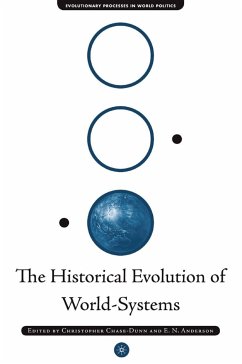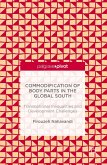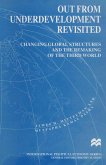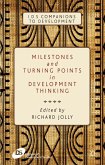The rise and decline of great powers remains a fascinating topic of vigorous debate. This book brings together leading scholars to explore the historical evolution of world systems through examining the ebb and flow of great powers over time, with particular emphasis on early time periods. The book advances understanding of the regularities in the dynamics of empire and the expansion of political, social and economic interaction networks, from the Bronze Age forward. The authors analyze the expansion and contraction of cross-cultural trade networks and systems of competing and allying political groupings. In premodern times, theses ranged from small local trading networks (even the very small ones of hunting-gathering peoples) to the vast Mongol world-system. Within such systems, there is usually one, or a very few, hegemonic powers. How they achieve dominance and how transitions lead to systems change are important topics, particularly at a time when the United States' position is in flux. The chapters in this book review several recent approaches and present a wealth of new findings.
"Professors Chase-Dunn and Anderson have put together a most valuable collection, showing current developments in research on large-scale political economies. The book is wide-ranging, covering cycles of Eurasian political-economic change and dominance over several millennia. And it lives up to its mission, which is to advance and extend research and theory examining historical development on a scale transcending traditional foci on single polities or societies in isolation. The work will of course be of great interest to historical and comparative scholars concerned with the established issues of world-systems thinking. But it also engages all sorts of researchers in the broad area of globalization. And substantively, the specific studies carry large-scale political-economic analyses far back into world history, greatly broadening conceptions of that history. Overall, the work shows how much has been accomplished in recent decades. As well, it opens up fascinating new research issues and foci."
- John W. Meyer, Professor of Sociology (emeritus), Stanford University
"The essays in this book offer a rich survey of different aspects of world-systems theory, demonstrating that it is currently the most disciplined, vibrant and fruitful way of studying relations between different parts of the world over the last five or six millennia. The book offers the best possible introduction to world-systems thinking and suggests why world-system theories are so important to scholarship in world history." - David Christian, San Diego State University
"This sweeping volume examines the rise and decline of cities, empires, and world-systems from the Bronze Age to the Modern Age. Bursting with fresh approaches to global trade, elites and state administrations, these essays are must-read material for scholars and students of global history."
- - Jack A. Goldstone, Hazel Professor of Public Policy, George Mason University
- John W. Meyer, Professor of Sociology (emeritus), Stanford University
"The essays in this book offer a rich survey of different aspects of world-systems theory, demonstrating that it is currently the most disciplined, vibrant and fruitful way of studying relations between different parts of the world over the last five or six millennia. The book offers the best possible introduction to world-systems thinking and suggests why world-system theories are so important to scholarship in world history." - David Christian, San Diego State University
"This sweeping volume examines the rise and decline of cities, empires, and world-systems from the Bronze Age to the Modern Age. Bursting with fresh approaches to global trade, elites and state administrations, these essays are must-read material for scholars and students of global history."
- - Jack A. Goldstone, Hazel Professor of Public Policy, George Mason University








